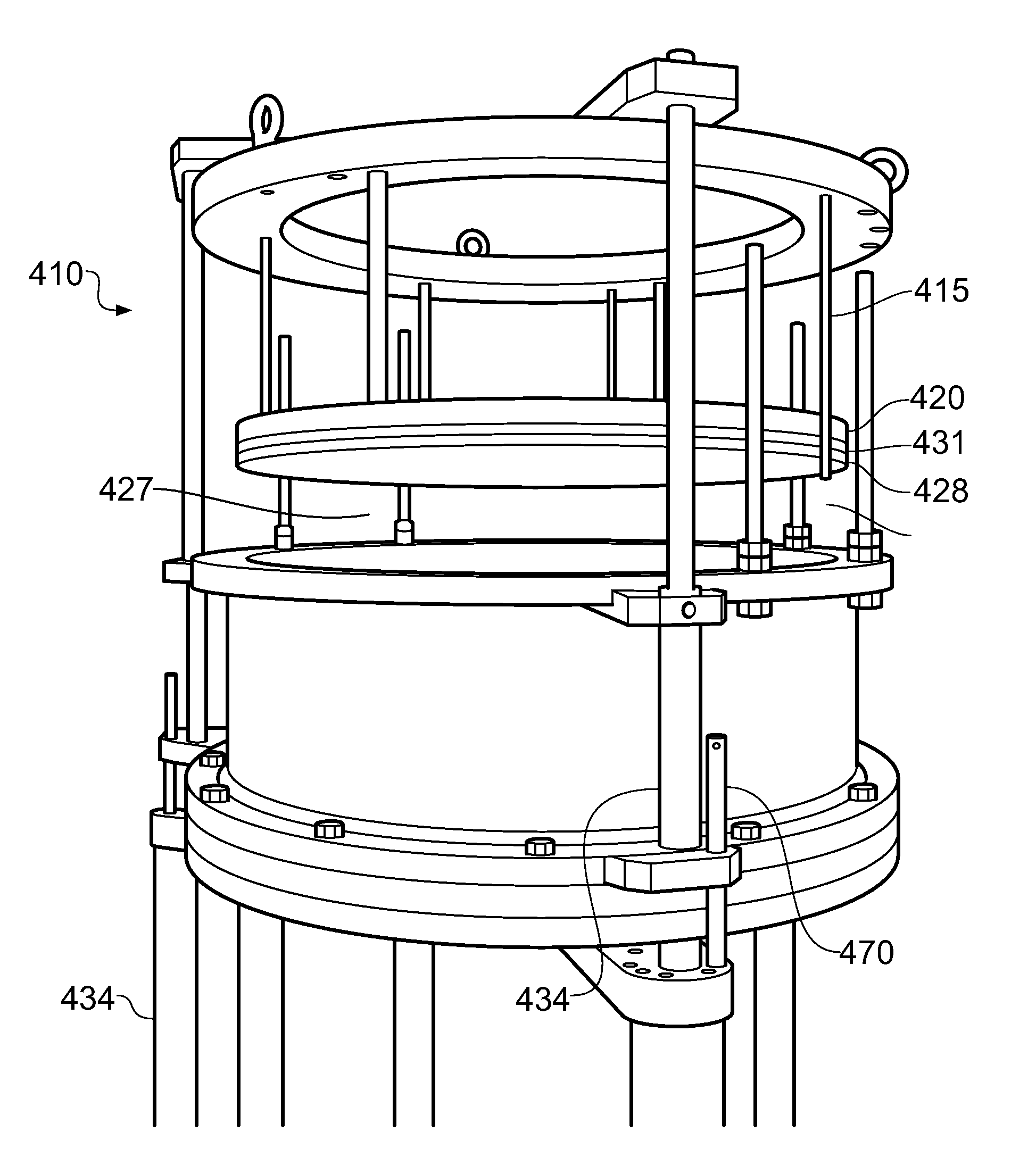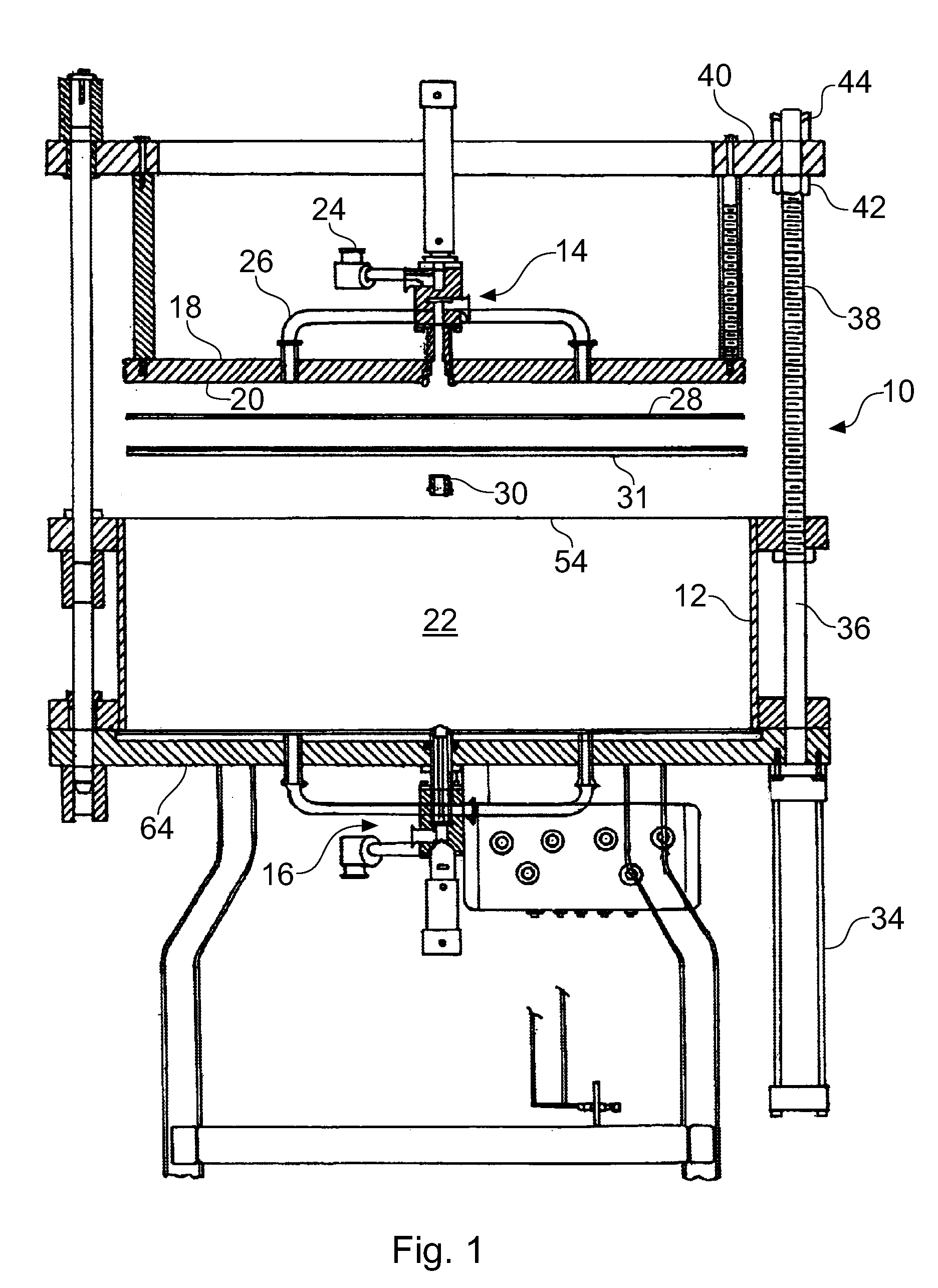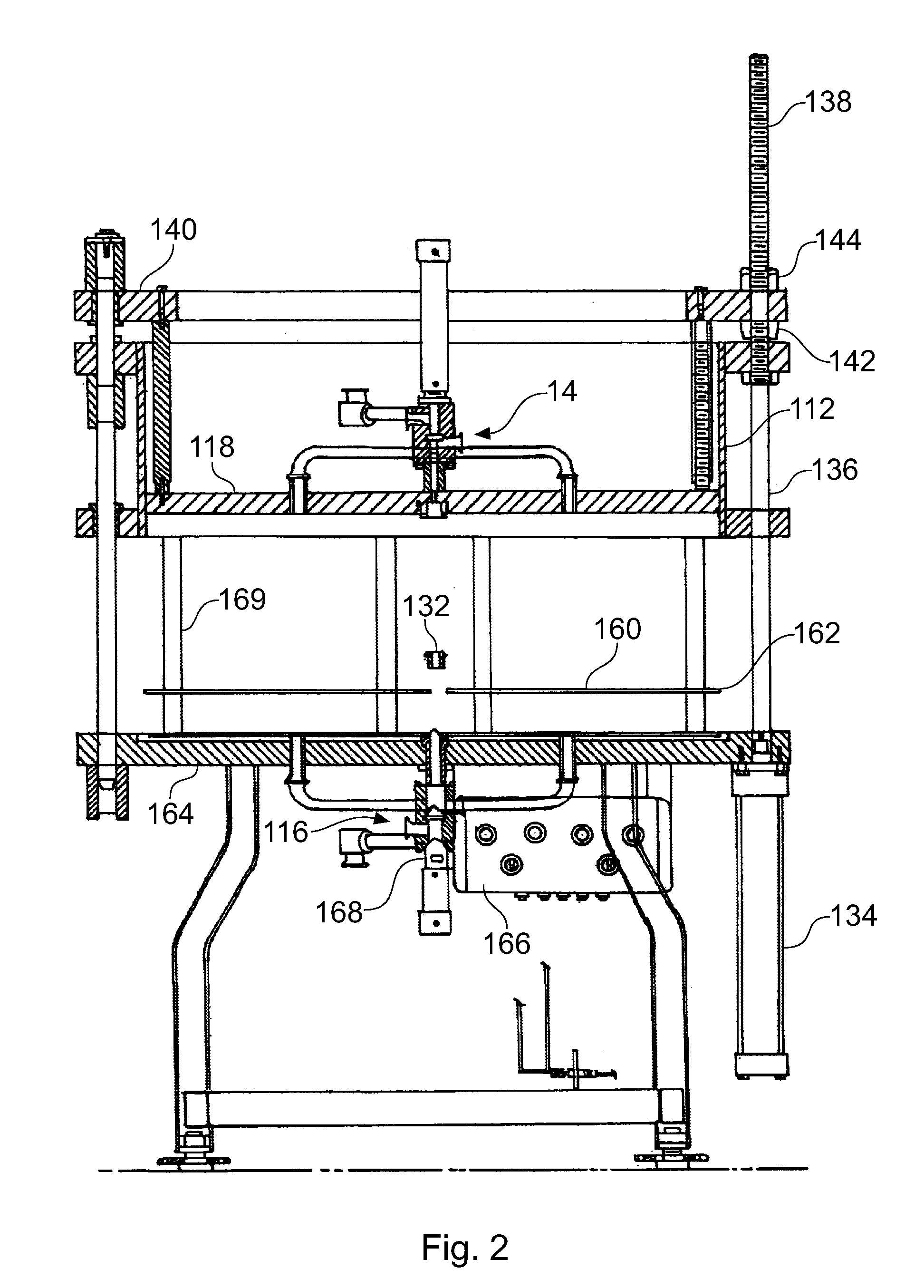Method for conducting maintenance on a chromatography column
- Summary
- Abstract
- Description
- Claims
- Application Information
AI Technical Summary
Benefits of technology
Problems solved by technology
Method used
Image
Examples
Embodiment Construction
[0084]The present invention is concerned with a method and apparatus for conducting maintenance on a chromatography column. The invention is described by reference to chromatography columns which utilise drive systems to lift and / or lower the adapter assembly, and lift and / or lower the tube and adapter assembly. It will be understood that the invention could equally be described by reference to chromatography columns wherein these components are raised and / or lowered by an overhead hoist or crane. FIG. 1 shows a column 10 known in the art and described in U.S. Pat. No. 6,736,974 which permits maintenance within a chromatography column without the need for a hoist or crane. The column 10 comprises an elongated hollow cylindrical housing 12, or tube, having a dispersion system 14 at the top and a collection system 16 at the bottom. The dispersion system 14 includes a cylindrical drum 18 having an upper cylindrical plunger head or adapter 20 formed at the lower or interior end (i.e. in...
PUM
| Property | Measurement | Unit |
|---|---|---|
| Angle | aaaaa | aaaaa |
Abstract
Description
Claims
Application Information
 Login to View More
Login to View More - R&D
- Intellectual Property
- Life Sciences
- Materials
- Tech Scout
- Unparalleled Data Quality
- Higher Quality Content
- 60% Fewer Hallucinations
Browse by: Latest US Patents, China's latest patents, Technical Efficacy Thesaurus, Application Domain, Technology Topic, Popular Technical Reports.
© 2025 PatSnap. All rights reserved.Legal|Privacy policy|Modern Slavery Act Transparency Statement|Sitemap|About US| Contact US: help@patsnap.com



